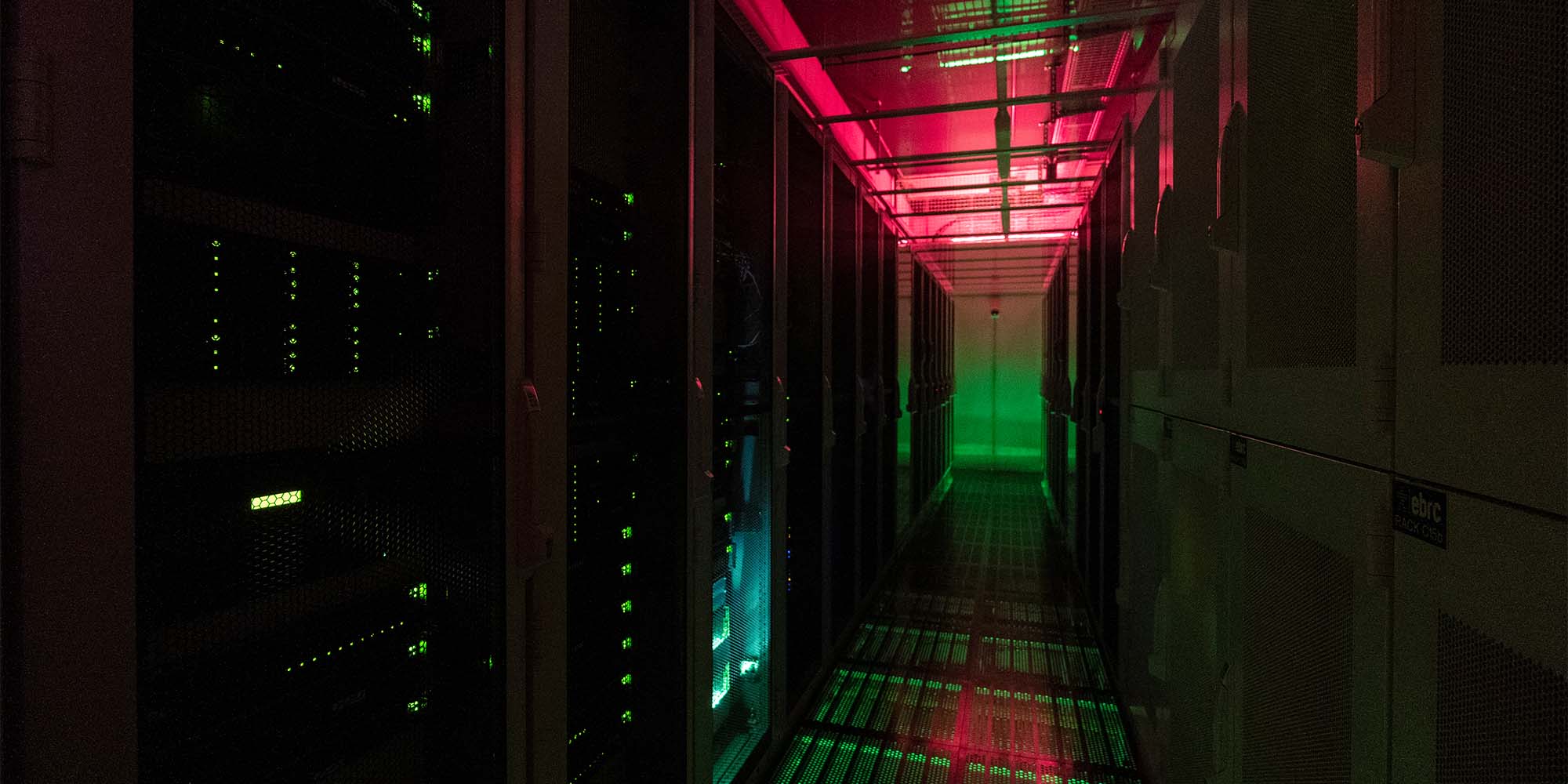Meeting the energy challenge – CSR commitment - POSTGroup
Given the considerable electricity requirements inherent in the services offered, POST has embarked on an ambitious programme to improve its infrastructure’s energy efficiency.
The growing use of digital technology has become central to society; this means that energy requirements are becoming ever greater. Keeping step with the digital transformation of the economy, POST has seen a considerable increase in its final energy consumption, by between 1% and 4% annually, over the last few years. For the Group to continue providing quality services to our customers, our requirements must represent around 2% of the country’s annual electricity consumption.
Around 60% of this electricity is used to power the Group’s data centres. One fifth of electricity requirements is needed to operate the fixed network.
Less than 10% of the electricity purchased by POST supports the operation of the mobile network.
However, it is important to note that POST has chosen to use only green electricity, and our production of electricity does not give rise to CO2 emissions.
A comprehensive approach to energy management and optimisation
Starting with a better understanding of our energy needs, the challenge is to identify what levers can be used to reduce consumption and eliminate waste.
“We need to look at a number of ways of reducing POST's energy consumption," explained Joseph Kessler, Energy & Resilience Manager, POST Luxembourg. As far as buildings are concerned, we will have to aim for passive construction and make the best use of space. Beyond that, we need to work with the business units to identify ways of reducing and optimising their consumption. At the same time, we need to raise our customers' awareness of these issues. Finally, to cover residual energy needs, it is essential to explore renewable production solutions, adopting the course of generating energy for our own consumption.”
Using a 360° approach and working on the three strategies of moderation, optimisation and compensation, POST is taking a series of concrete measures to optimise its energy efficiency.
1. Optimising energy management in the data centres
A significant proportion of electricity is consumed in our data centres. It powers all the services enjoyed by customers who have chosen to outsource the management of their IT resources to POST. This energy is mostly used to cool computer rooms, to ensure that servers function properly, as using them generates heat.
Although the data centres have been designed to be eco-responsible, our teams are constantly working to improve their energy efficiency. Insulating cooling corridors, replacing refrigeration production systems with machines with magnetic bearings, replacing energy-guzzling equipment and increasing the temperature of computer rooms are all ways of improving the energy efficiency of data centres.
"While we are exploring ways of reducing our electricity requirements, we also need to recover as much as possible of the thermal energy emitted by the equipment in order to recycle it", explained Antoine François, Head of Datacentre Services at EBRC, the POST Group subsidiary that manages these infrastructures.
This heat can be reused to heat office spaces, for example. It can also be injected into external heating networks and channelled to other buildings nearby, or to agricultural greenhouses where vegetables can be grown. There is also the intention to implement a system for individual analysis of energy consumption for each customer, so that they can be given support in their responsible approach to digital technology and helped to reduce their electricity requirements.
2. Reducing network energy consumption
A telecommunications network, be it fixed or mobile, also needs electricity to operate. By rolling out more energy-efficient technologies and speeding up the decommissioning of older generation networks, POST is working to improve the energy efficiency of telecoms infrastructures. By 2025, we aim to reduce energy consumption by 15%.
“With this in view, one of the challenges is to identify the items that consume the most energy, by monitoring the energy requirements of the various pieces of equipment in real time. In this way, we can identify what to leverage in order to optimise consumption,” explained Pierre Scholtes, Head of Telecom Networks at POST Luxembourg. The analysis should enable us to define where we need to take action to reduce network consumption as effectively as possible, without compromising the quality of service offered to our users.”
For its mobile network, POST has implemented a management approach based on artificial intelligence. The aim is to adapt the capacity of the network, and therefore energy requirements, according to the level of demand from users throughout the country. This strategy should allow certain frequencies to be placed in deep sleep when they are not in use to connect users.
For the fixed network, one lever for reducing energy requirements is the decommissioning of legacy technologies (copper and non-IP-Internet Protocol technologies) in favour of IP-based services. Fibre optics, on which the connectivity offer is now based, is much less energy intensive.
It requires less than a tenth of the electricity needed to run a copper network.
3. Promoting the production of green energy
The main buildings in the Courrier & Logistique activity are particularly well suited to solar panels, so POST Luxembourg has decided to install them on the roofs of its largest sites.
POST’s photovoltaic production currently represents less than 1% of the Group’s total energy consumption. However, the intention is to step this up, especially with the commissioning of the HELIX solar roof in 2024.
About POST Luxembourg
POST Luxembourg is the country's leading postal and telecommunications operator, offering its services to residential and business customers. Other activities include postal financial services and philately. With over 4,500 employees working for the company and its subsidiaries, the POST Luxembourg Group is one of Luxembourg's leading employers.
Founded in 1842 as an administration, POST Luxembourg has been a public company owned by the Luxembourg State since 1992. Facilitating the communication and transmission of information, data and content between individuals and businesses in Luxembourg and around the world is the vision of the POST Luxembourg Group.
For further information: www.postgroup.lu and www.post.lu

Supplier Code of Conduct
The Procurement Department has developed a code of conduct to promote purchasing and subcontracting in line with POST Luxembourg's CSR approach.
Annual Report
Discover how POST creates value for all our stakeholders and Luxembourg, as well as the CSR approach that is embedded in all our activities.

